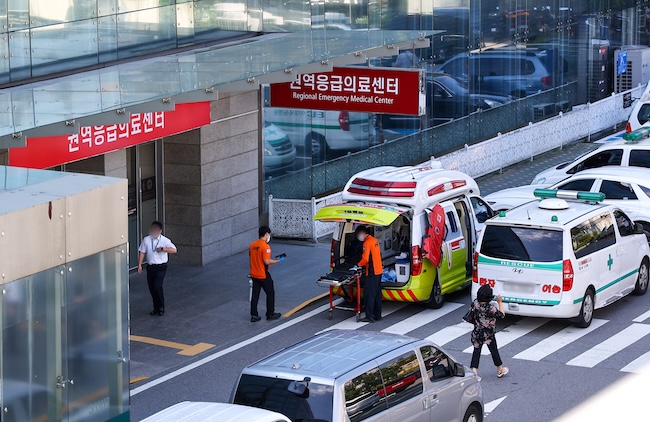
“South Korea Identifies Emergency Care Crisis as Key Driver for Medical Reform”
South Korea’s health ministry has identified ongoing difficulties in managing emergency rooms as a major impetus for its push for medical reform. This includes increasing the quota for medical school admissions.
The national emergency care system has faced growing concerns as several hospitals have reduced emergency room hours due to staff shortages, exacerbated by a walkout of junior doctors protesting the government’s proposed reforms, Yonhap news agency reported.
“Challenges in emergency care have been a persistent issue within the current medical system. Addressing these challenges is a core reason for the government’s push for medical reform,” Second Vice Health Minister Park Min-soo stated at a meeting of the Central Disaster and Safety Countermeasures Headquarters.
As of Wednesday, four hospitals—including Ewha Womans University’s medical center in Mokdong, Seoul, and Kangwon National University Hospital in Chuncheon—have cut back on emergency room hours. Soonchunyang University Hospital in Cheonan also plans to partially suspend emergency services for children.
In response, the government has deployed 15 military doctors to five hospitals and plans to send an additional 235 military doctors and public physicians to other understaffed hospitals by Monday. To ensure coverage during the Chuseok holiday from September 11-25, a special task force has been established to oversee the operations of 409 emergency medical centers nationwide.
“The government will work closely with local authorities and medical institutions to navigate these challenges,” Park assured.
As part of the medical reform, the Yoon Suk Yeol administration has pledged to increase medical school admissions by 2,000 seats annually over the next five years, with an initial increase of approximately 1,500 students for next year. However, doctors argue that this increase could strain medical schools and compromise the quality of medical education and services.
Park reiterated calls for doctors to engage in “constructive discussions,” emphasizing that the government is open to negotiating a “reasonable solution” regarding the number of medical school seats for 2026.